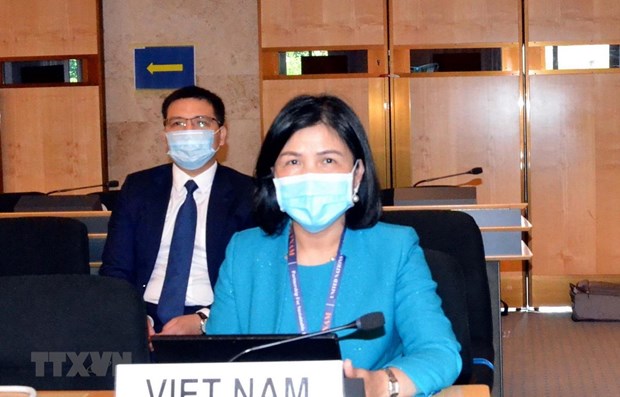 |
|
Ambassador Le Thi Tuyet Mai, head of the Vietnamese delegation in Geneva |
She was speaking at a dialogue with Virginia Gamba, Special Representative of the UN Secretary General for Children and Armed Conflict, within the 44th session of the UN Human Rights Council.
The ambassador expressed her concern over and condemned acts of violence and violations of children's rights, saying Vietnam is willing to cooperate and share experience in this field.
She called on relevant sides to observe basic principles of international humanitarian law and the Convention on the Rights of the Child (CRC) to protect civilians, especially children in armed conflicts, take practical measures to minimise the adverse impact of armed conflicts on children, step by step find basic solutions to deal with the root cause of conflicts, conduct national reconciliation and promote sustainable development, while helping children who had participated in armed conflicts reintegrate into the community.
In her remarks, Virginia Gamba said throughout 2019 children continued to be the primary victims of armed conflicts.
Last year, some 4,400 incidents of denial of humanitarian access to children were verified, as compared to 795 incidents of this nature in 2018: an exponential increase and the highest one for any violation in any one year.
The COVID-19 pandemic has added another grim layer to this reality: with lockdowns and school closures we are at risk of seeing increasing cases of military use of empty buildings and of attacks on health facilities, she said.
Representatives from countries, the UNICEF and non-governmental organisations called for a ceasefire to facilitate humanitarian aid, integrate the protection of child rights into peace talks and post-conflict reconstruction.
They also recommended that countries raise awareness and commit to protecting child rights in armed conflicts, improve the effect and efficiency of legal punishment mechanisms towards perpetrators and fully comply with international human rights standards and relevant international law.
Regarding environmental impacts on children's rights, the meeting heard that WHO estimates that every year, the deaths of 1.7 million children under the age of five are due to environmental factors – notably air and water pollution and exposure to toxic substances. Twelve million children in developing countries experience permanent brain damage due to lead poisoning.
Many countries shared their view on the responsibility of governments in ensuring children's rights and human rights to live in a green environment, and called for more intensive and extensive cooperation between governments, businesses, research institutes and organisations in this regard./.VNA